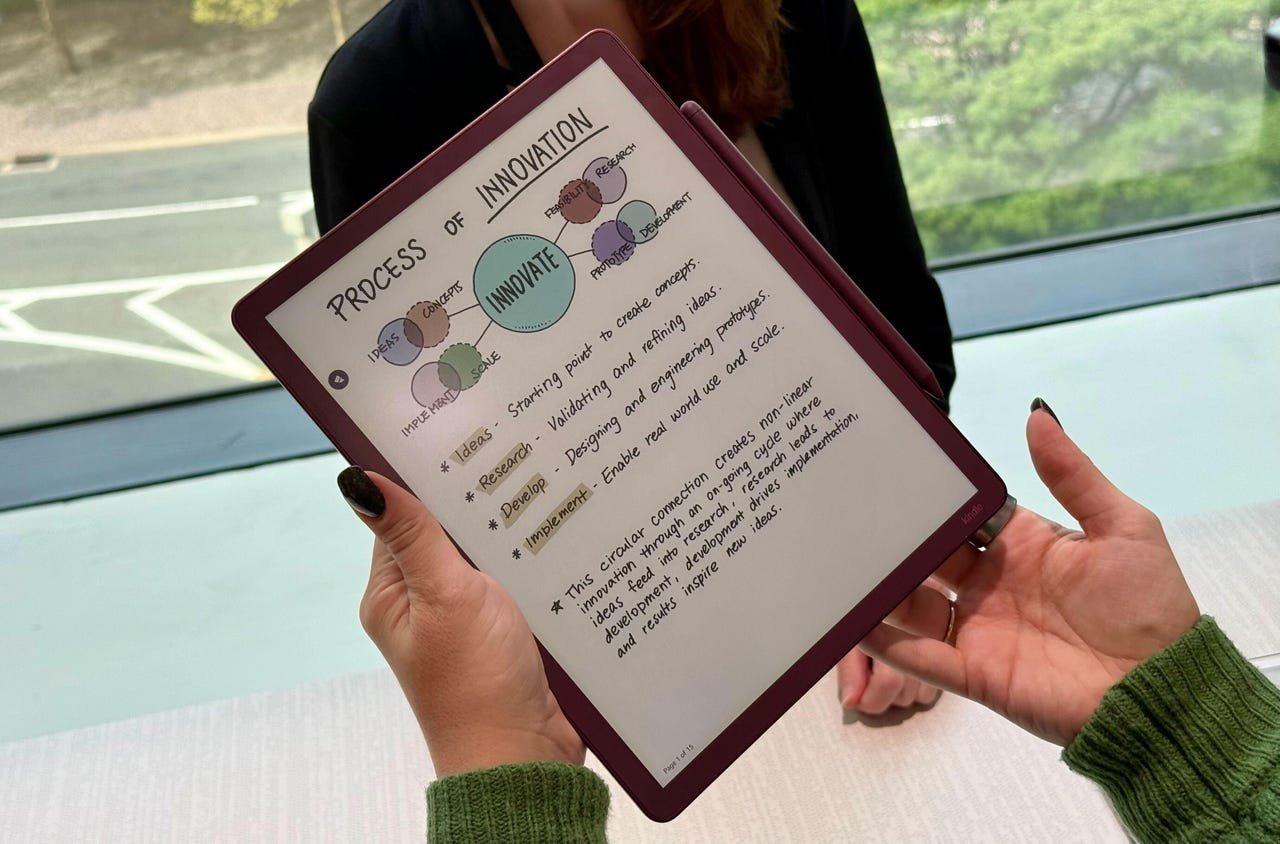Amazon unveiled 'Story So Far' and 'Ask This Book'—two generative AI tools that help Kindle users catch up on forgotten plot points and characters without spoilers. These features address a universal reader dilemma while showcasing practical AI implementation in consumer tech.
For countless readers, Kindle libraries resemble literary graveyards: shelves filled with books started enthusiastically but abandoned mid-journey when life intervened. At Amazon's recent Devices & Services event, the company targeted this universal struggle with two generative AI-powered features designed to resurrect half-finished stories.
 Caption: The Kindle Scribe Colorsoft, one of the devices receiving new AI reading features. (Credit: Nina Raemont/ZDNET)
Caption: The Kindle Scribe Colorsoft, one of the devices receiving new AI reading features. (Credit: Nina Raemont/ZDNET)
The Distracted Reader's Dilemma
As Artie Beaty notes in ZDNET's hands-on report, many readers face a common challenge: "Over half of my library is books in various states of completion." Returning to a partially read book often means wasted time flipping backward to recall character relationships or pivotal plot points—if we return at all.
AI to the Rescue
Amazon's solution arrives in two forms:
- Story So Far: Generates a spoiler-free summary covering only the content you've already read. This AI-curated recap eliminates tedious skimming while protecting future plot reveals.
- Ask This Book: Allows readers to highlight passages and ask contextual questions ("Who is this character?" or "Why did this event happen?"). Crucially, responses draw exclusively from the text you've consumed, maintaining narrative integrity.
Technical Implementation
These features represent a nuanced application of generative AI:
- Context-Aware Processing: Systems analyze reading progress to dynamically adjust responses
- Spoiler Avoidance Algorithms: Strict boundary enforcement ensures summaries/questions never reference unread content
- Localized Intelligence: Processing occurs on-device or via secure cloud APIs, though Amazon hasn't detailed the architecture
Availability and Implications
The tools will debut on Kindle's iOS app later this year before expanding to eligible e-readers in 2024. While launching alongside new Kindle Scribe models ($429-$630), they'll enhance existing devices—a notable departure from hardware-gated features.
This signals a broader trend: consumer tech increasingly leverages AI to solve mundane but persistent friction points. As Beaty observes, "The ability to not only quickly catch up, but also avoid spoilers... is a game-changer." For developers, it demonstrates how constrained, context-aware AI implementations often deliver more immediate value than broad chatbots.
While not revolutionary, these features exemplify AI's quiet evolution from novelty to utility—transforming abandoned chapters into finished stories one personalized query at a time.

Comments
Please log in or register to join the discussion